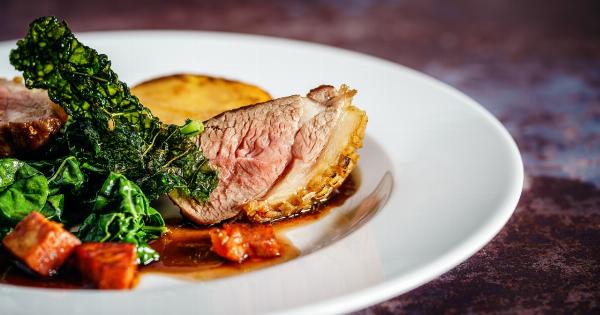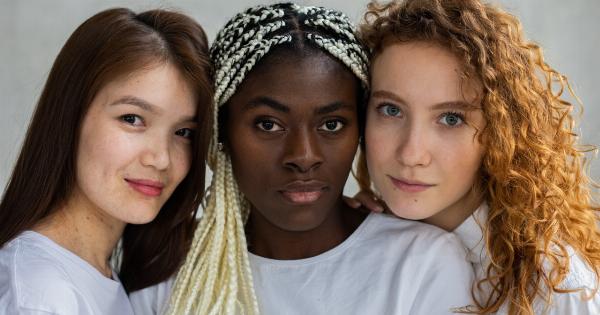Coffee is one of the most popular beverages in the world, enjoyed by millions of people every day.
But have you ever wondered why some people prefer a strong, bold cup of black coffee, while others opt for a creamy latte or a sweet mocha? The psychology of coffee preferences offers fascinating insights into our individual tastes and why we choose the coffee flavors that we do.
1. The Role of Genetics
It is widely believed that our genetics play a significant role in shaping our preferences, including our coffee choices. Research suggests that genetic variations can influence how we perceive the taste of coffee.
For example, people with a particular gene variant might find the bitter taste of black coffee more enjoyable, while others may be more sensitive to bitterness and prefer milk-based coffee drinks to balance the flavor.
2. Personal Experiences
Our personal experiences with coffee also shape our preferences. This includes early exposure to coffee, cultural influences, and associations formed over time.
If you grew up in a household where coffee was a focal point of daily conversations, you might have developed a stronger affinity for coffee and specific flavors. Similarly, if you have positive memories associated with drinking coffee in cozy cafes, you may gravitate towards those environments and the flavors they offer.
3. Cultural Influences
Coffee plays an integral role in many cultures around the world, and cultural factors heavily influence coffee preferences. For example, in Italy, the birthplace of espresso, the focus is on bold flavors and small serving sizes.
In contrast, Scandinavian countries have a strong coffee culture that values light, single-origin brews. Understanding the cultural context of coffee can provide valuable insights into why certain flavors and brewing methods are preferred in specific regions.
4. Social Conditioning
Our coffee preferences can also be influenced by social conditioning. Advertising, peer pressure, and societal norms all play a role in shaping our taste preferences.
For instance, if a particular brand consistently markets its coffee as luxurious and high-quality, it may influence our perception of its taste. Similarly, if everyone in your social circle enjoys a particular type of coffee, you may be more likely to try and develop a preference for it.
5. Psychological Associations
Our coffee preferences can also be influenced by psychological associations we make with different flavors. For example, many people associate bold, bitter coffee with wakefulness and productivity.
On the other hand, sweet, creamy coffee drinks may be linked to indulgence and relaxation. These associations can impact our preferences based on our desired emotional state or the role we want coffee to play in our lives.
6. Emotional Factors
Emotions can significantly influence our coffee preferences. People often turn to coffee for comfort or as a pick-me-up during times of stress, sadness, or fatigue. In such cases, individuals may prefer rich, comforting flavors like caramel or chocolate.
On the other hand, when seeking an energizing effect, they might opt for bolder, more stimulating flavors. Our emotional state at any given time can guide our coffee choices.
7. Personal Values and Ideologies
Personal values and ideologies can shape our coffee preferences as well. Individuals who prioritize sustainability and ethical sourcing might prefer coffee brands that focus on fair trade and environmentally friendly practices.
Similarly, those with a health-conscious mindset might opt for lighter roasts or seek out coffee alternatives like herbal teas. Our values and beliefs can guide us towards coffee choices that align with our personal convictions.
8. Variety-seeking Behavior
Some individuals have a natural inclination for variety and enjoy exploring different tastes and flavors. These individuals may have a wider range of coffee preferences, ranging from black coffee to flavored lattes and everything in between.
The desire for novelty and new experiences can lead to regularly changing coffee preferences based on personal curiosity and a drive to discover new flavor combinations.
9. Cultural Capital
Within certain societies, coffee preferences can also become markers of cultural capital.
The term “cultural capital” refers to the knowledge, skills, tastes, and preferences that allow individuals to navigate and participate in a particular social group. In some circles, having an extensive knowledge and appreciation for specialty coffee, including the ability to identify different tasting notes and brewing methods, can enhance one’s social standing and be seen as a sign of sophistication.
10. The Power of Marketing
Lastly, the power of marketing cannot be overlooked when considering coffee preferences. Coffee companies invest significant resources in branding, packaging, and advertising to influence consumer choices.
Clever marketing strategies can create associations between specific flavors, lifestyles, and personal identities, which can, in turn, shape our coffee preferences.
Conclusion
While personal taste undoubtedly plays a role, the psychology of coffee preferences reveals a multitude of factors at play when it comes to our coffee choices.
From genetics and personal experiences to cultural influences and marketing strategies, our preferences are influenced by a complex interplay of factors. Understanding these psychological drivers can help us appreciate the diverse world of coffee and gain valuable insights into what drives our own preferences.































